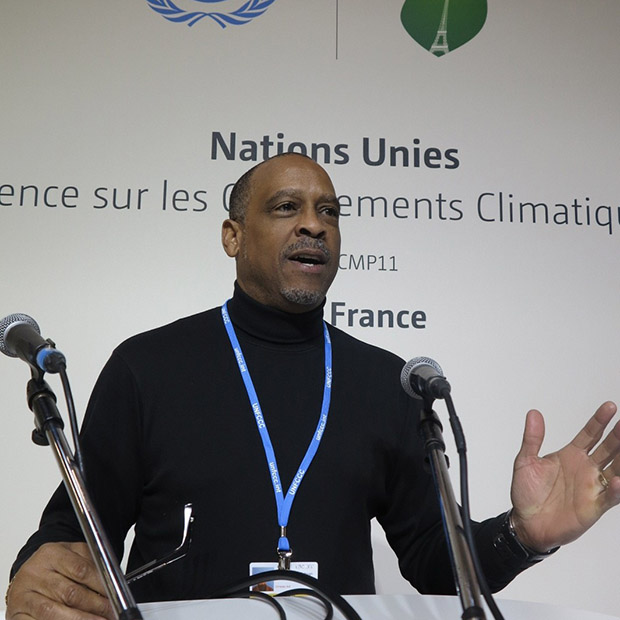Pope Francis could not have been any clearer in his message: We, as humans, have a clear duty to take care of creation and protect “our common home.” It is not just about the planet, but also a concern for people, for individuals, families and communities whose lives are being transformed by climate change. Let us do unto the planet and unto our brothers and sisters as they would do unto us for the good of our children, our grandchildren and for all future generations to come.
Changing climatic patterns are putting severe and additional strain on communities and families whose resources are already limited. I personally saw this myself when I lived in a rural Kenyan community as a Methodist pastor. The river beds were dry most of the year and the people severely undernourished. Today, hundreds of wells have dried up across the Sahel and the Horn of Africa. Women have to walk further in search of water and farmers are going into debt just to feed their families.
CWS is providing invaluable aid to help farming communities in more than 30 countries to build cisterns, prepare for storms and plant new species of crops that are drought resistant. But our hard work does not change the fact that there is less rainfall and more natural disasters. Hurricanes are more intense and our droughts longer.
We are spending more and more of our hard-earned resources to recover after natural disasters such as the devastating recent floods in South Carolina and forest fires in California. Facing these challenges head on is part of the work of faith leaders and communities today.
Last month, I traveled back to Kenya to speak with African parliamentarians, faith and civil society leaders in Nairobi. We were in agreement that we needed more dialogue, greater testimonies of faith, new liturgies and increased cooperation across all religious traditions, between wealthy and poor nations and involving men and women, young and old. We are in agreement that even though human action was the root of the problem of changing climate, human solidarity today could be the source of its solution.
As a global citizen, I believe there is an inherent injustice unfolding in the countries most vulnerable to climate change. People need to be able to improve the quality of their lives, and that is a calling and a burden that all of us must share.
Now, in Paris, is possibly the most important global climate summit of our times, COP21. Faith leaders from all around the world are there.Together, the faith community knows our words and actions can have profound influence. I proudly took part in a fast to highlight the desperate need for just climate action. We are reminding world leaders that there is a moral and ethical lens through which we see a just response to climate change.
The faith community is speaking with one voice, lifting up our common concern for and universal commitment to the Least of These and how climate change often impacts those with the least resources to cope. We are in unison in a hopeful, prayerful vision for a peaceful, safe and healthy planet. Now is the perfect opportunity to work together – as a global family – for more sustainable models of development, that puts less strain on the planet, builds solidarity across rich and poor communities and countries, and preserves our common home.
Each and every one of us makes a personal statement for climate justice in the choices we make daily.
The Rev. John L. McCullough is President and CEO of CWS.

